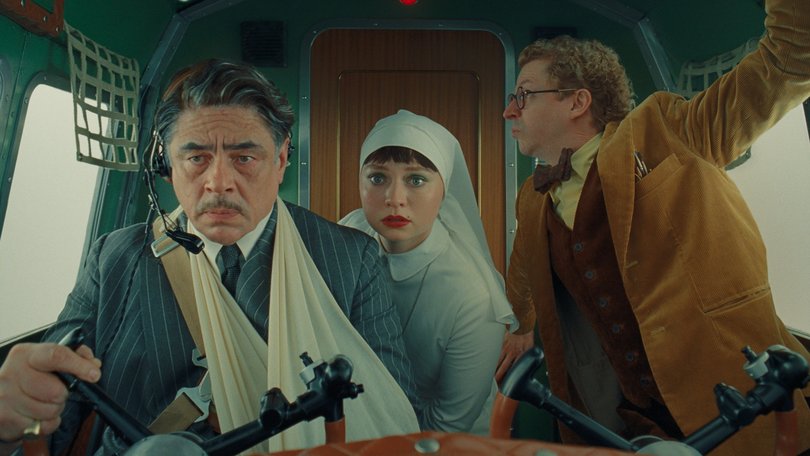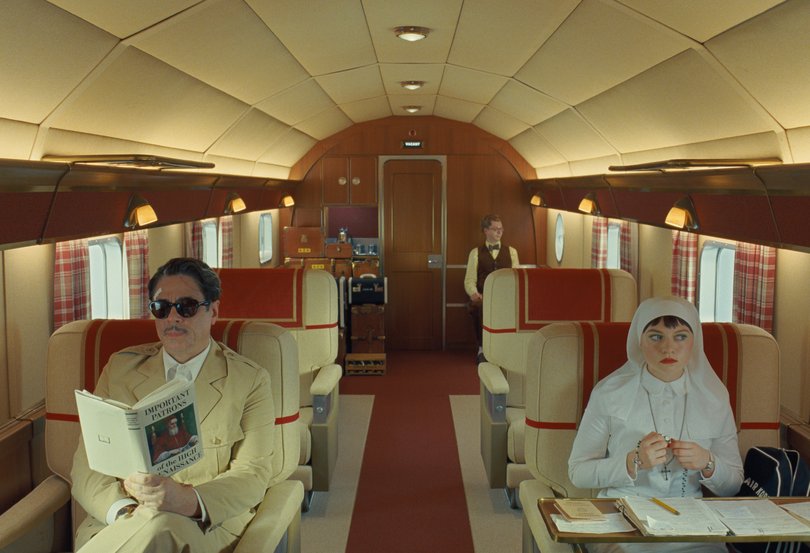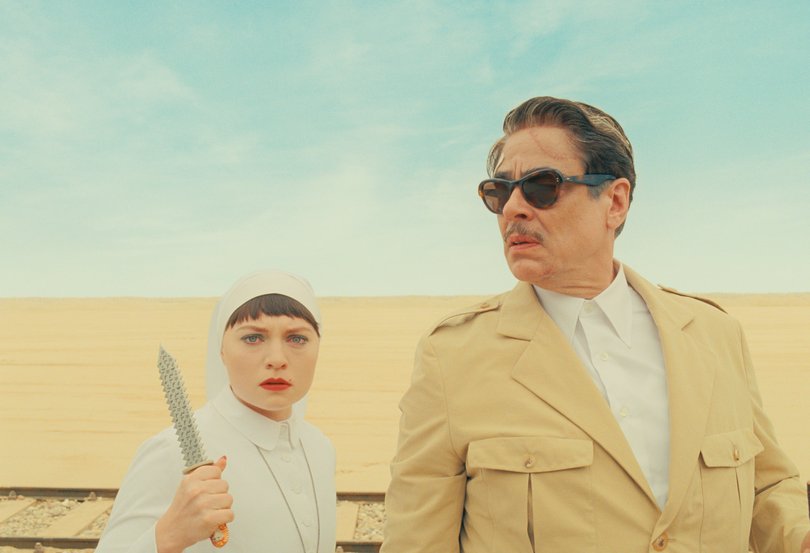The Phoenician Scheme review: Wes Anderson’s latest film is perfectly charming
Wes Anderson’s latest film is more accessible and familiar, a father-and-daughter caper with emotional stakes.

To call Wes Anderson’s movies “cute” would be reductive.
They’re multi-layered concoctions that are meticulously framed but Anderson is just as concerned about his story and the characters as he is about his visual style, which, of course, never falters. There’s nothing casual about any word of dialogue or emotional beat.
But because of the diorama effect of his work, there can be a distance that exists between the film and the audience, as if his worlds are impenetrable because they’re too staged.
Sign up to The Nightly's newsletters.
Get the first look at the digital newspaper, curated daily stories and breaking headlines delivered to your inbox.
By continuing you agree to our Terms and Privacy Policy.In this most recent film, Asteroid City, the stage was literal. Most of that story was a play within a theatre within a movie, a matryoshka doll of narrative structure to rival a Christopher Nolan joint. The film before that, The French Dispatch, was an anthology of stories that sat within a framing tale.
With The Phoenician Scheme, Anderson returns to a more recognisable form, a straightforward caper centred on one man and his pursuit of an end. It is more accessible and familiar, and it will please those audiences who feel the American filmmaker’s work has veered off the path in recent years.

This is more vintage Anderson, but that doesn’t mean it’s a regression. There is an evolution here in his thematic preoccupations driven in part by his own parenthood, and there are still Luis Bunuel-esque, surrealist digressions into his lead character’s subconsciousness. Or maybe it’s the afterlife. Either way, Bill Murray shows up as God.
The film is set in 1950 and the lead is Zsa-Zsa Korda (Benicio del Toro), a wealthy businessman who has survived several assassination attempts over the years. After the latest incident – a bomb on a plane – Zsa-Zsa decides to bring his daughter into his confidence so that, if anything should happen to him, she can complete his latest venture.
Liesl (Mia Treapleton) is a novitiate nun and not interested in her father’s interests, nor does she approve of his unethical practices that involve exploiting communities and workforces, with a bit of slavery and copious tax dodging thrown in.
Zsa-Zsa names her his heir and she goes along with it for now, after he promises to deliver to her the man he suspects is responsible for her mother’s death.

Along with a Norwegian tutor named Bjorn (Michael Cera), the trio embark on a multi-stop mission to the far stretches of the fictional European, or perhaps Levantine, country of Phoenicia to extract more money out of a series of investors into Zsa-Zsa’s big infrastructure project after the price of a component was artificially inflated by government spies (led by Rupert Friend).
The film is part caper, part road trip, as jumping from place to place gives Anderson the opportunity the bring in some of his favourite people in his company as well as some new faces.
Riz Ahmed, in his first Anderson role, plays a prince in the sequence with Tom Hanks and Bryan Cranston (both were in Asteroid City) as a pair of investors skilled with a basketball; Mathieu Amalric (Grand Budapest Hotel, The French Dispatch), Jeffrey Wright (The French Dispatch, Asteroid City) and Richard Ayoade (The Wonderful Story of Henry Sugar) feature in a set-piece involving a boat, a nightclub and a revolutionary group; Scarlett Johansson (Asteroid City, Isle of Dogs) plays a distant cousin necessary for a marriage plot; and Benedict Cumberbatch (The Wonderful Story of Henry Sugar) plays Zsa-Zsa’s sketchy half-brother.
Treapleton (who is Kate Winslet’s daughter, and absolutely sounds like her mother) and Cera might be newcomers to Anderson’s universe but there they slot in like natives, in command of the specific rhythms of his writing and direction.

With del Toro, the core trio serve as effective anchors for the film, especially the developing father-and-daughter relationship between Zsa-Zsa and Liesl. Because of the structure, it would be tempting to see this as a rehash of the Gustave and Zero dynamic from The Grand Budapest Hotel, but these two are spikier.
Liesl doesn’t approve of her dad and while Zsa-Zsa might think he’s being practical in bringing her into the fold, what he really wants is her respect and affection. The stakes are different, including his semi-lowkey existential crisis.
There’s a lot to like in The Phoenician Scheme including some very charismatic performances, especially from del Toro whose large physique and the severity of his mission and profession contrasts with the character’s barely veiled softness.
Zsa-Zsa is kind of like an Anderson movie. Because everything is so meticulous and deliberate, you think you have its measure, but when you stop to really consider it, there’s a lot more going on under the surface, and here, that includes a subtle critique of oligarchies and the ethics of how wealth is amassed.
It’s not as tender as Moonrise Kingdom or as sharp as The Grand Budapest Hotel, and lacks the strength of the emotional connectedness of his earlier work such as The Royal Tenenbaums, but The Phoenician Scheme is very agreeable and charming.
Rating: 3.5/5
The Phoenician Scheme is in cinemas on Thursday, May 29

